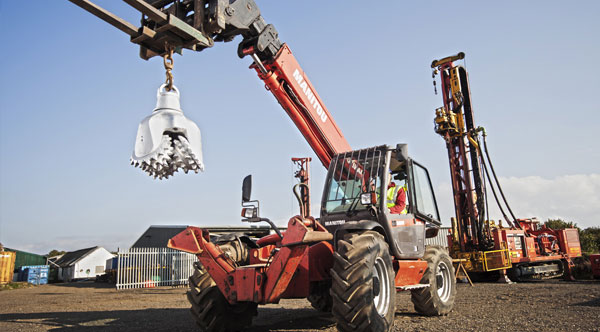
If you’ve been considering a borehole for your business or site, you have probably come across the term ‘artesian well’. This may have left you wondering, what is an artesian well? Simply put, an artesian well is a water well that doesn’t require a pump to bring water to the surface. This occurs when there is enough positive pressure in the aquifer to bring the water to the surface. An artesian aquifer is confined between impermeable rocks or clay which causes this positive pressure.
When it comes to the water itself, all groundwater is largely the same. However, artesian wells have a point of difference, purely as a result of the way the water reaches the surface. With an artesian well, it is not necessary to pump water to the surface from the groundwater supply. Instead, the pressure underground is such that once tapped into the water from the aquifer rises up to the surface without any assistance. This makes it an easy and reliable source for homes and commercial purposes.
Artesian wells have had their place in societies around the globe for centuries. In fact, it is considered by many to be an ancient form of water supply. This is because artesian wells were able to support families and communities before the invention of pumps and advanced drilling technologies. In fact, the first ever recorded artesian well was reportedly drilled way back in 1126 in the French province of Artois by a group of Monks. The word ‘artesian’ is derived from the name of this province.
Of course, back then there were no fully operational drilling rigs involved, so the well was accessed with a healthy mixture of brute force and a sharp rod. This rod was known as a bore. This technique would eventually break through the rock, causing the water to rise to the surface.
Get in touch with our team to find out more about how we can help you tap into an artesian well.

Thankfully, the way we access artesian wells today is a lot more sophisticated and doesn’t require weeks or even month of backbreaking manual digging.
When an artesian well is drilled, using a drilling rid, the pressure of the aquifer is released. This allows water to find a path to the open air, and in many cases this pressure will be great enough to bring the water all the way to the surface without assistance. This is known as a flowing artesian well.
While it may seem like artesian wells are a never-ending source of water, they can still run dry. This usually happens if there’s a drop in the aquifer’s water level due to changes in the environment. While artesian wells are a reliable water source, keeping an eye on usage and water levels is advisable for long-term sustainability.
Get in touch to find out more about artesian wells. Contact us today using our online form or call the team on 0808 175 5228.
The water from an artesian well goes through a natural filtration process as it permeates through layers of rock, making it generally cleaner than surface water. However, that doesn’t mean it’s always safe to drink straight from the well. We strongly recommended testing the water to ensure it hasn’t been infiltrated by contaminants like heavy metals or bacteria.

The lifespan of an artesian well can vary depending on various factors, including the health of the aquifer, geological conditions and human activity. Some have been known to last for decades — or even a century.
The environmental footprint of an artesian well is generally lower than other types of wells, thanks to its natural pressure system that eliminates the need for electrical pumps. But while artesian wells are generally eco-friendly, they’re not without their drawbacks. For example, over-extracting water can harm the surrounding ecosystem. Also, if the well isn’t capped properly, it can lead to wasteful overflow.
Local plant and animal life also rely on stable groundwater levels. While these wells are generally eco-friendly, they still require careful oversight to prevent negative effects on the environment. If you’re thinking about installing an artesian well, it’s a good idea to consult with environmental experts first. They can provide a detailed assessment of the potential impact on your specific location, helping you make an informed and responsible decision.
One of the more common questions we get asked by our customers is how much does an artesian well cost. And the answer is? Less than you might think.
Water utility costs have spiked in recent years, and show no signs of slowing down. Although tapping into a natural groundwater source might mean paying money out in the short-term, the savings you make over time can quickly account for those upfront costs.
An artesian aquifer is caught between impermeable rocks or clay, and this is what causes the positive pressure to occur. Natural springs occur when there is a gap in this rock and pressure is released. Sometimes this pressure is so great it creates a fountain known as a geyser.
This is the same process as the creation of an artesian well, but one that occurs naturally via an earthquake or similar disturbance.
For more information on artesian wells, contact our friendly drilling team today via our online form or call the team on 0808 175 5228.